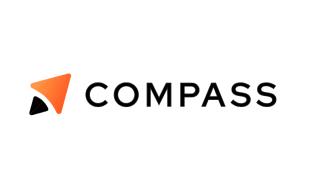
With Wall Street’s leading the way in interest and investment in blockchain startups, it should be no secret at this point that the healthcare industry isn’t far behind.
Several blockchain ventures that have gained traction in fintech could also have applications in healthcare. Arguably, the top priority for these applications is the enhancement of the healthcare industry’s identity management systems. With the number of data breaches in the last few years rising, there is a legitimate need in healthcare information technology to find a better method of protecting data from theft. Interoperability and the need to modernize healthcare’s delivery systems for patient safety are also high priorities.
Blockchain technology could offer solutions to these problems, but the technology alone will not be enough to support innovation.
The Key is Collaboration
Since the beginning of 2017, there have been several conferences, such as HIMSS17 and the Healthcare Blockchain Summit, that have attempted to educate professionals and foster intra-industry collaboration over the blockchain.
At each conference, speakers presented on their experiences, visions and the current state of blockchain technology specifically focusing on healthcare. Overall, it has become clear that the real challenge to successfully apply blockchain technology to existing healthcare data systems lies not in the technological components of the solution, but the human ones.
“Why so much buzz and so little execution?” asked John Mattison, assistant medical director and chief health information officer of Kaiser Permanente, at HIMSS17 in February. “It’s the trust [not the technology].”
Mattison points to an industry hurdle that existed within healthcare long before the genesis of blockchain technology and Bitcoin. Blockchain or any major technological innovation in healthcare will require the cooperation between competitors and a consistent dialogue between public and private sectors in order to transform the industry.
In his speech, Mattison stated that the consortium concept is a way for blockchain to overcome its trust hurdle. In fact, he refers to it as blockchain’s “trust foundation.” Mattison went on to use the R3 Consortium and its early struggles to determine control amongst its partners as a case study for how difficult it can be to build trust within and across verticals.
“Even when you can get people to work together, there’s still no certainty that these people, who are historically competitors, won’t secretly run off to patent the technology to keep their competitive edge,” he said.
Another blockchain advocate in healthcare, John Bass, the founder and CEO of Hashed Health, led a panel during the Distributed: Markets conference on consensus models and industry collaboration. Along with Bass, the panel included the president of the Chamber of Digital Commerce Perianne Boring, VP and studio design lead of RGA Farron Blanc and Bitfury’s executive director of the Global Blockchain Business Council, Mercina Tillemann-Dick. The panel covered a wide range of topics, from the Estonian government’s use of blockchain to the U.S. government’s struggle for regulations and how blockchain mitigates the risk of existential threats. However, there was no doubt that everything discussed revolved around the importance of consortia.
There’s now more than 100 different blockchain consortia. Though the majority are financial, they are also popping up in the commodities, insurance and healthcare sectors with increasing regulatory. With private blockchains (which are centralized) and public blockchains (which are de-centralized) offering opposite ends of the technology's regulation spectrum, the consortium model plays the middle ground where communication and trust are essential to successfully implementing a blockchain application and network.
“Without a network of participants, blockchain and distributed ledger projects are an academic exercise,” said Bass. “Consortia do the hard work of driving the network collaboration required to move projects from concept to successful commercialization.”










